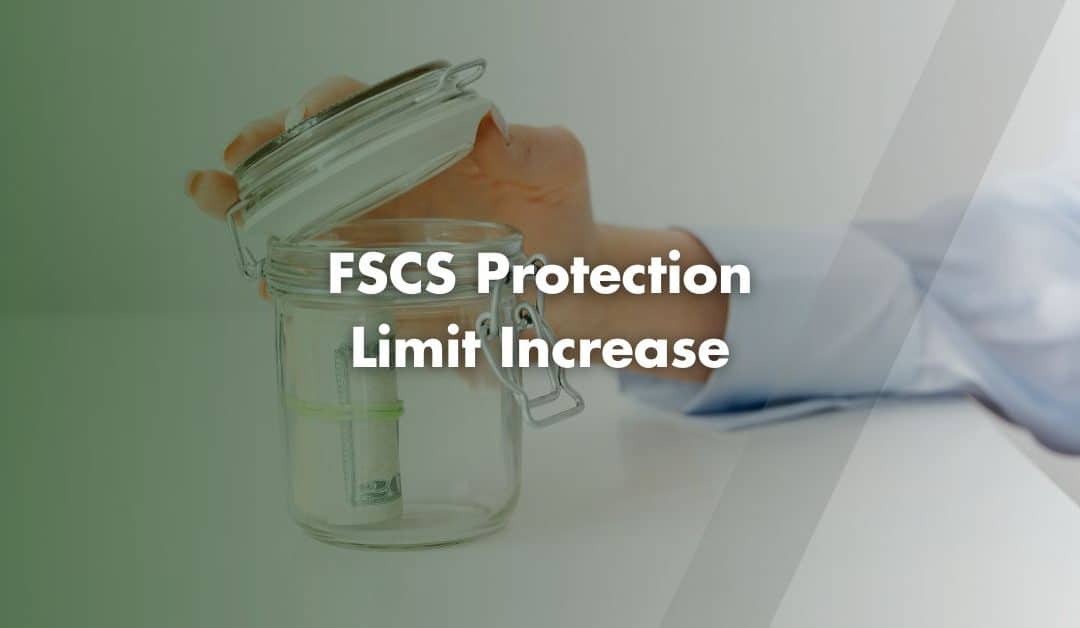From 1st December 2025, savers across the UK can enjoy much stronger protection for their money. The Financial Services Compensation Scheme (FSCS) will increase its protection limit from £85,000 to £120,000.
The Bank of England approved this rise because inflation has eroded the real value of the current limit. Prices have climbed for years, so the old £85,000 threshold no longer offers the same level of security. The new £120,000 limit ensures your savings keep more of their value if your bank, building society or credit union fails.
You will not need to take any action to receive this higher protection. The increase will work automatically, as long as your provider holds UK regulation and participates in the FSCS.
[Check Your Bank Has FSCS Protection]
How FSCS Protection Works
The FSCS protects money you hold with UK-regulated financial institutions. From December 2025, the first £120,000 you save with each institution will stay protected. This rule covers your money across all your accounts with that provider. You do not need to register or sign documents to activate this level of protection.
If you hold a joint account, both account holders receive separate allowances. This means a joint account can hold up to £240,000 in total protection. This approach benefits couples who keep large shared savings. However, the limit applies per person, per institution. If you hold several accounts with the same bank, that combined balance will fall under a single £120,000 allowance.
Important: Do not assume each account receives a separate limit. This can leave your savings exposed if all your accounts belong to the same provider.
Higher Cover for Temporary High Balances (Major Life Events)
Your balance may rise after certain Major Life Events. You might sell your main home, receive an inheritance or gain an insurance settlement. These moments can place large sums in your account for a short time. The FSCS recognises this and gives extra protection called Temporary High Balance Cover.
From December 2025, the temporary high balance limit will rise from £1 million to £1.4 million. This cover lasts for six months from the date of the event. You will not need to apply for this protection. However, you must prove the source of the money if your bank fails during that six-month window.
The temporary high balance rules only apply to specific situations. So, proceeds from selling a second home will not qualify. Only the sale of your main home will trigger this extra protection. The scheme also offers unlimited protection for temporary balances that arise from personal injury claims, disability claims or incapacity-related payments.
How to Check Your Savings Have Protection
Using the FSCS Bank Checker
The FSCS offers a simple online tool that allows you to check whether your bank or building society holds proper authorisation. You should search for your provider and confirm its name and six-digit Firm Reference Number (FRN). You can usually find this number at the bottom of your bank’s website.
The FSCS will also introduce a redesigned protection badge by May 2026. Banks, building society and credit unions will begin to show this badge on their websites, apps and branches.
Check Which Banks Share a Licence
Some UK banks share a licence with other brands under the same group. When this happens, your allowance applies across the entire group, not each individual brand. This setup can confuse savers and lead to unexpected limits.
For example: HSBC and First Direct share one banking licence. If you save £100,000 with HSBC and £50,000 with Firsts Direct, you will exceed the new £120,000 limit. Both accounts fall under one combined allowance.
Spreading Your Savings with Caution
You can protect more of your money by spreading your savings across several UK-regulated institutions. This approach keeps each balance below the £120,000 limit. Many smaller banks offer competitive rates and hold the same level of FSCS protection as major high-street names.
However, large UK banks operate under strict regulation and face close monitoring. Recent failures mostly involved small credit unions instead of major high-street banks. Even when a provider fails, the FSCS usually returns customers’ money within seven days.
The Last FSCS Increase
The last FSCS increase took place in 2017. Since then, inflation has risen sharply. Goods that cost £85,000 in 2017 cost over £114,000 in 2025. The old limit did not match this rise. As a result, the Prudential Regulation Authority (PRA) reviewed feedback during its consultation and adjusted the proposed figure. The original suggestion of £110,000 did not fully reflect inflation trends. The PRA increased the final limit to £120,000 to offer stronger protection.
Consumer groups and industry experts welcomed this upgrade. They argued that higher protection supports confidence in the financial system and encourages people to save.
[Check Your Bank Has FSCS Protection]
Contact Us
We are not just accountants; we are Chartered Accountants with one of the most reputable and premium accounting bodies. We are registered and regulated by ACCA; so you can rest assured that you are in good hands. Knowing this, don’t hesitate to get in touch with us if you require assistance: Pi Accountancy | Contact Us
This article is for general informational purposes only and does not constitute legal or financial advice. While we aim to keep our content up to date and accurate, UK tax laws and regulations are subject to change. Please speak to an accountant or tax professional for advice tailored to your individual circumstances. Pi Accountancy accepts no responsibility for any issues arising from reliance on the information provided.

